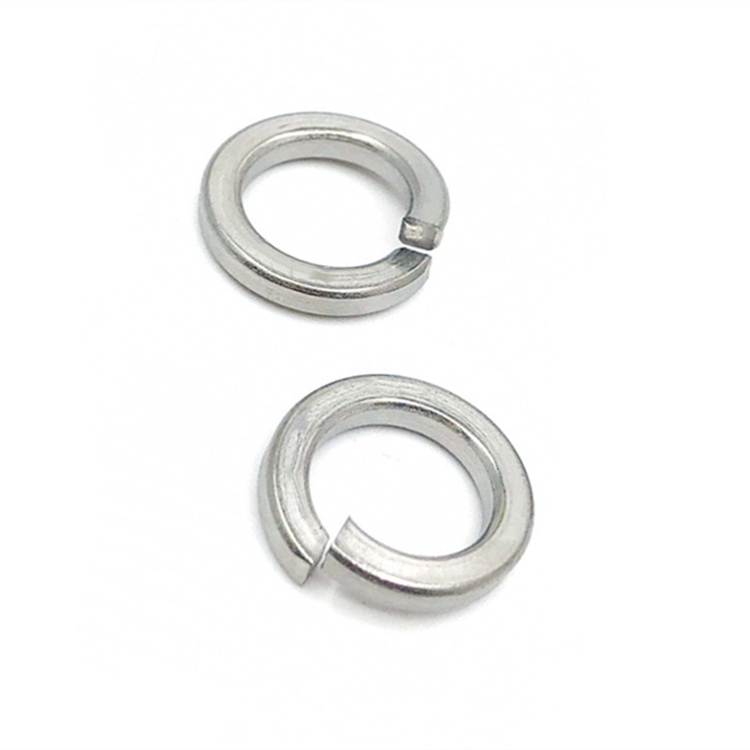1 2 stainless steel bolts
វិច្ឆិកា . 12, 2024 09:47 Back to list
1 2 stainless steel bolts
Understanding 1% 202 Stainless Steel Bolts Features, Applications, and Benefits
When it comes to fasteners, bolts are fundamental components in various industries, ranging from construction to automotive. Among the myriad of materials used for bolts, stainless steel stands out due to its durability, strength, and resistance to corrosion. One specific grade, 1% 202 stainless steel, is gaining attention for its unique properties and applications. This article delves into the characteristics, advantages, and common uses of 1% 202 stainless steel bolts.
What is 202 Stainless Steel?
202 stainless steel is an austenitic chromium-nickel-manganese alloy. It is classified as a low-cost alternative to 304 stainless steel, which is a more commonly known grade. The composition of 202 stainless steel typically includes approximately 17% chromium, 4% nickel, and a higher content of manganese, around 8%. This specific alloying not only reduces costs but also enhances certain properties, making it a popular choice for various applications.
The inclusion of 1% nitrogen in the alloy improves strength and corrosion resistance, allowing 202 stainless steel bolts to perform well in various environments. Unlike other stainless steel grades, 202 is less susceptible to pitting and crevice corrosion; however, it is essential to note that it may not perform as well as higher grades in highly corrosive environments, such as marine applications.
Key Features of 1% 202 Stainless Steel Bolts
1. Corrosion Resistance While not as robust as 304 stainless steel, 1% 202 stainless steel provides good resistance to oxidation and various chemicals. It performs well in moderately corrosive environments, making it suitable for use in industries like food processing and general manufacturing.
2. High Strength The unique composition of 202 stainless steel provides impressive tensile strength. This means that 1% 202 stainless steel bolts can withstand significant forces without deforming or breaking, which is crucial in construction and heavy machinery applications.
3. Aesthetic Appeal Stainless steel bolts have a shiny, attractive finish that makes them suitable for visible applications where aesthetics are important. Their corrosion resistance ensures that this finish lasts longer than that of many other materials.
1 2 stainless steel bolts

4. Ease of Fabrication 1% 202 stainless steel is relatively easy to fabricate, allowing for efficient production of bolts in various sizes and specifications, meeting specific industry requirements.
Applications of 1% 202 Stainless Steel Bolts
1. Construction Due to their strength and durability, 1% 202 stainless steel bolts are widely used in construction applications, including the assembly of structural steel frameworks, bridges, and buildings. Their resistance to rust makes them suitable for outdoor structures.
2. Automotive Industry The automotive sector utilizes these bolts for fastening components, ensuring the structural integrity of vehicles while providing resistance to various elements. Their lightweight nature compared to other steel grades offers an additional advantage.
3. Manufacturing In manufacturing, where machinery and equipment are often exposed to liquids and chemicals, 1% 202 stainless steel bolts are ideal for fastening parts without the worry of premature failure due to corrosion.
4. Household Items These bolts are commonly found in household items, such as furniture, appliances, and plumbing fixtures. Their aesthetic appeal and strength make them a preferred choice for products that require both functionality and style.
Conclusion
1% 202 stainless steel bolts provide a compelling combination of strength, corrosion resistance, and aesthetic appeal, making them a valuable choice across multiple industries. While they may not possess the same level of corrosion resistance as higher-grade stainless steels, they offer a cost-effective solution for many applications. Whether in construction, automotive, or household products, understanding the benefits of 1% 202 stainless steel bolts can lead to better material choices and enhanced product durability. As industries continue to evolve, these bolts will undoubtedly remain a staple in fastener technology, meeting the demands of an ever-growing market.
Latest news
-
Top Wire Bolts Suppliers & Exporters - Quality Fasteners Factory
NewsJul.23,2025
-
Reliable Wire Bolts Company & Supplier for Construction Solutions
NewsJul.22,2025
-
Premium Spike Wheel Nuts Supplier | Durable Quality
NewsJul.21,2025
-
High Strength Black & Galvanized Hex Bolts DIN933/931 GB5782/5783
NewsJul.20,2025
-
High-Quality Panel Stud Bolt Reliable Panel Stud Bolt Factory & Suppliers
NewsJul.08,2025
-
High-Precision Fine Thread Locknuts Manufacturer & Supplier Custom Solutions
NewsJul.08,2025
